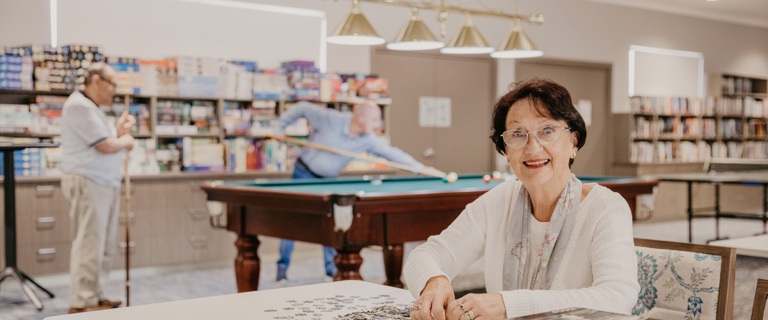Social prescribing pilot tackles loneliness epidemic

Bolton Clarke Research Institute will lead a four-year pilot project aimed at reducing social isolation, loneliness and depressive symptoms and preventing unnecessary hospitalisation in older people in Melbourne after receiving funding through The Ian Potter Foundation.
The Connecting Communities to Care project will co-design and pilot a community-wide social connection model of care to improve health and wellbeing for isolated older people in the South East Melbourne Primary Health Network area.
The project aims to develop an effective and sustainable social connection approach, including social prescribing, to connect older people with chronic conditions experiencing or at risk of loneliness, social isolation and/or depressive symptoms through screening, engagement and linkage to appropriate community-based activities. It will run in collaboration with Alfred Health, The Australian Disease Management Association and South Eastern Melbourne Primary Health Network.
The social connection approach, which is modelled on successful social prescribing work in the UK, will be replicable across Australia.
Bolton Clarke Research Institute Senior Research Fellow Dr Rajna Ogrin said the project, which will be co-designed with older people and local service providers, represented a strong opportunity for early intervention to link the health and social needs of older people through a community-wide approach.
“At any one point in time up to 150,000 Victorians aged 65 years and over experience chronic loneliness,” she said.
“Life transitions including retirement, death of a partner, moving home, losing driving capacity, onset of illness or loss of mobility can lead to isolation and loneliness through diminished social networks.”
“There is wide acknowledgement in literature that meaningful social networks and the ability to sustain positive social relationships are important protective factors against loneliness and depression. Social connection through social prescribing is one method of addressing these non-medical needs that can affect people’s wellbeing.”
Dr Ogrin said the Connecting Communities to Care project would work by co-designing an approach to link older community members with existing social and wellbeing activities within the community and working with GPs, clinicians, service providers and The Alfred Hospital to integrate the activities into care delivery.
“An inter-sectoral approach including individual, group and societal level interventions is needed to support healthy ageing and reduce loneliness. Effective solutions are more likely to be found in social rather than clinical contexts,” she said.
“In the short-term we expect participants will experience a measurable reduction in social isolation, loneliness and depressive symptoms, improved social connectedness and mental, physical and social wellbeing.
“Longer term we would expect to see a reduction in avoidable emergency department presentations, unplanned hospital admissions and length of stay.
“Ultimately we would expect the Connecting Communities to Care program to be implemented in other communities throughout Victoria and Australia to provide the supports that local older people need and want in an ongoing and sustainable manner.”

